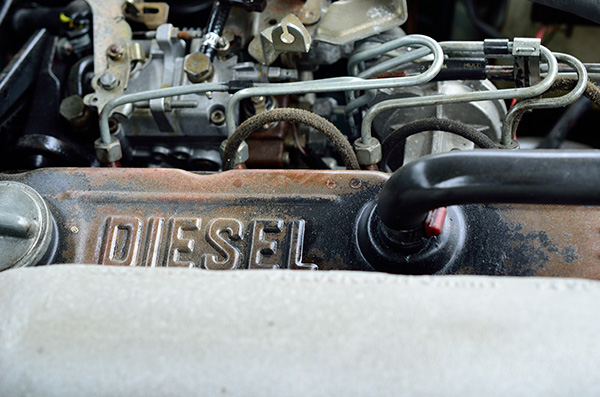
Diesel engines are known for their robustness, efficiency, and power—but what really makes them run? Whether you're behind the wheel of a diesel-powered car, truck, or heavy-duty machine, these engines run on principles and mechanics that set them apart from their gasoline counterparts. Unlike gasoline engines, diesel engines ignite fuel differently and are designed to handle a high level of stress, making them a staple in both commercial and heavy-duty applications. We’ll share the key elements that keep diesel engines running and why they’re a powerhouse in the world of internal combustion engines.
How Diesel Engines Differ from Gasoline Engines
What makes diesel engines stand out? It’s all about the combustion process. Diesel engines rely on compression ignition rather than the spark ignition found in gasoline engines. In simple terms, this means that diesel engines compress air to such high pressure and temperature that fuel ignites spontaneously when injected into the chamber. This process, while intense, is efficient and leads to powerful performance with less fuel.
In addition to the way they ignite fuel, diesel engines are built with stronger, more durable parts. Pistons, crankshafts, and the engine block are often heavier and more fortified to handle the higher pressures of compression ignition. This construction makes diesel engines last longer than many gasoline engines, adding to their appeal for drivers and industries needing dependable performance over the long haul.
Fuel Injection
Fuel injection is where the magic happens in a diesel engine. Instead of mixing fuel with air before it enters the cylinder (like in gasoline engines), diesel engines inject fuel directly into the cylinder, where it meets highly compressed hot air. Fuel injectors in diesel engines operate with incredible precision, timing, and pressure, controlling the exact amount of fuel released at just the right moment.
Modern diesel engines often employ high-tech common rail fuel injection systems, where fuel is stored under high pressure in a shared rail before distribution. This setup allows for multiple injections in a single combustion cycle, optimizing power and fuel efficiency. Advanced diesel injection systems improve performance and reduce emissions—an important feature as environmental regulations become stricter.
Giving Diesel Engines an Extra Boost
Turbochargers and diesel engines go hand-in-hand. By using exhaust gasses to spin a turbine, turbochargers force more air into the engine’s cylinders, resulting in more powerful combustion. This process is highly efficient, allowing diesel engines to deliver impressive torque without guzzling fuel.
Turbocharging is especially common in diesel engines because they are designed to handle high pressure. Unlike gasoline engines, diesel engines can better withstand the added boost from turbochargers, making them ideal for applications that demand both power and efficiency. For instance, you’ll find turbocharged diesel engines in trucks, buses, and heavy-duty vehicles where performance is a priority.
Durability and Longevity
One of the reasons diesel engines are so popular in commercial and industrial applications is their longevity. Due to their robust construction and the nature of diesel fuel itself, these engines wear out slower than gasoline engines. Diesel fuel has a higher energy density, meaning diesel engines run at lower RPMs compared to gasoline engines while delivering the same—or even greater—level of power. This lower RPM operation reduces wear on engine parts, contributing to the engine’s lifespan.
Diesel engines have fewer electrical components than gasoline engines, which often means fewer things can go wrong. Maintenance is, of course, essential, but diesel engines can run for hundreds of thousands of miles with proper care, making them a worthwhile investment for many drivers and companies alike.
Diesel Engines and Environmental Impact
While diesel engines are known for efficiency, they’ve faced criticism for their emissions, especially with regard to nitrogen oxides (NOx) and particulate matter. To tackle these issues, modern diesel engines are equipped with technologies like selective catalytic reduction and diesel particulate filters (DPF). SCR systems use a liquid called DEF (Diesel Exhaust Fluid) to break down NOx emissions into harmless nitrogen and water, while DPFs trap soot particles before they can be released into the atmosphere.
These emission-reduction technologies have made diesel engines cleaner and more compliant with stringent environmental regulations. As a result, diesel engines continue to be a viable choice for drivers and industries looking for both power and fuel economy without compromising on environmental responsibility.
Keeping Diesel Engines Running Strong
Owning a diesel vehicle means understanding the unique maintenance needs of diesel engines. Regular oil changes are vital, as diesel engines produce more soot and contaminants than gasoline engines. It’s also essential to monitor and maintain the fuel injection system, which is the lifeblood of any diesel engine. Even small issues in the fuel injectors can lead to significant performance drops or, worse, costly repairs.
Air and fuel filters should be replaced at recommended intervals to prevent contaminants from entering the engine and causing wear. Diesel engines benefit from periodic inspections of the turbocharger and exhaust system to ensure optimal performance and to avoid future costly repairs.
Get the most out of your diesel vehicle! Contact Complete Automotive for top-notch maintenance and repairs. Schedule your appointment today!